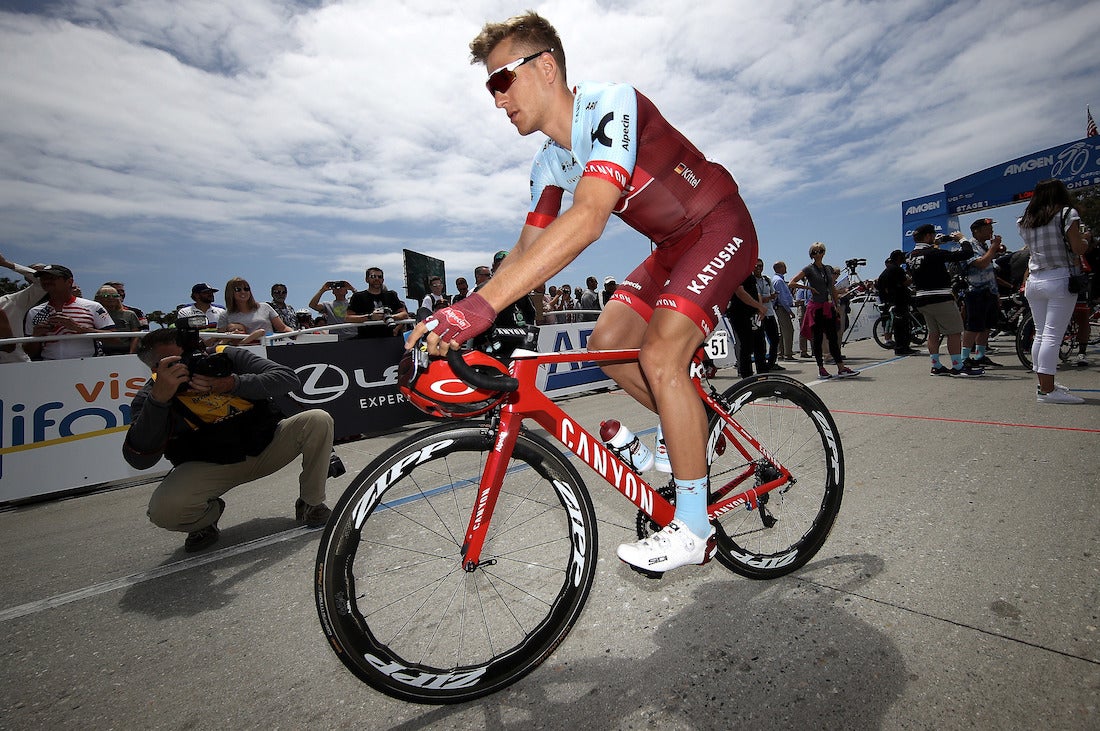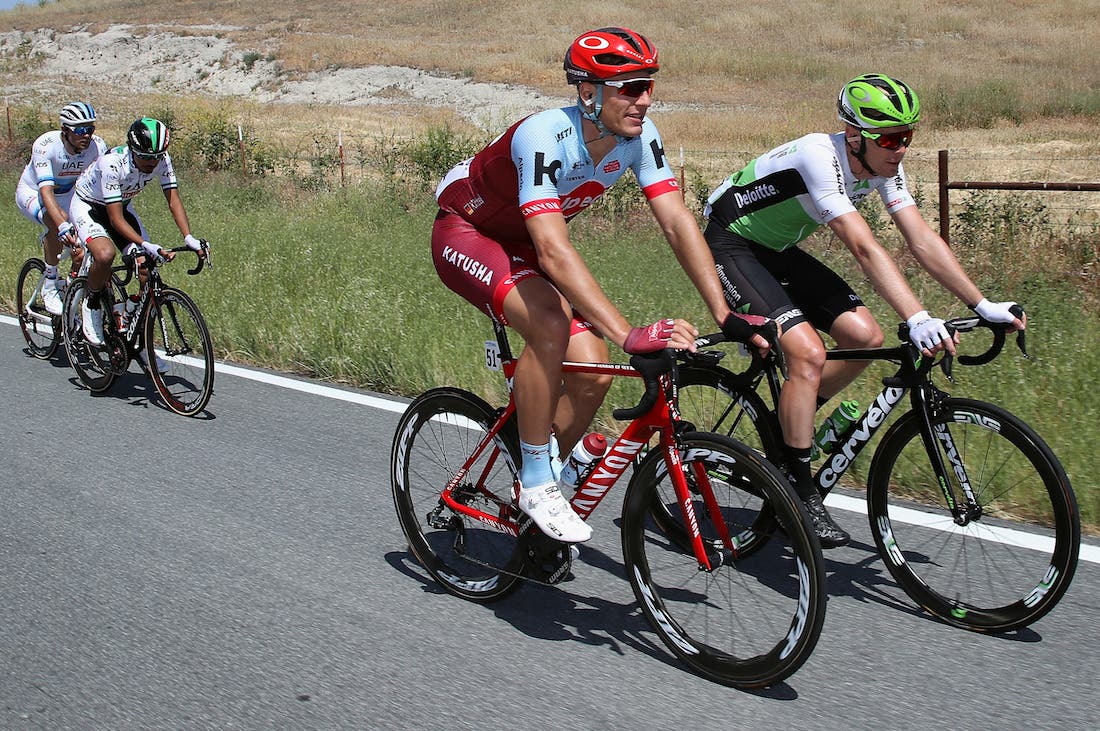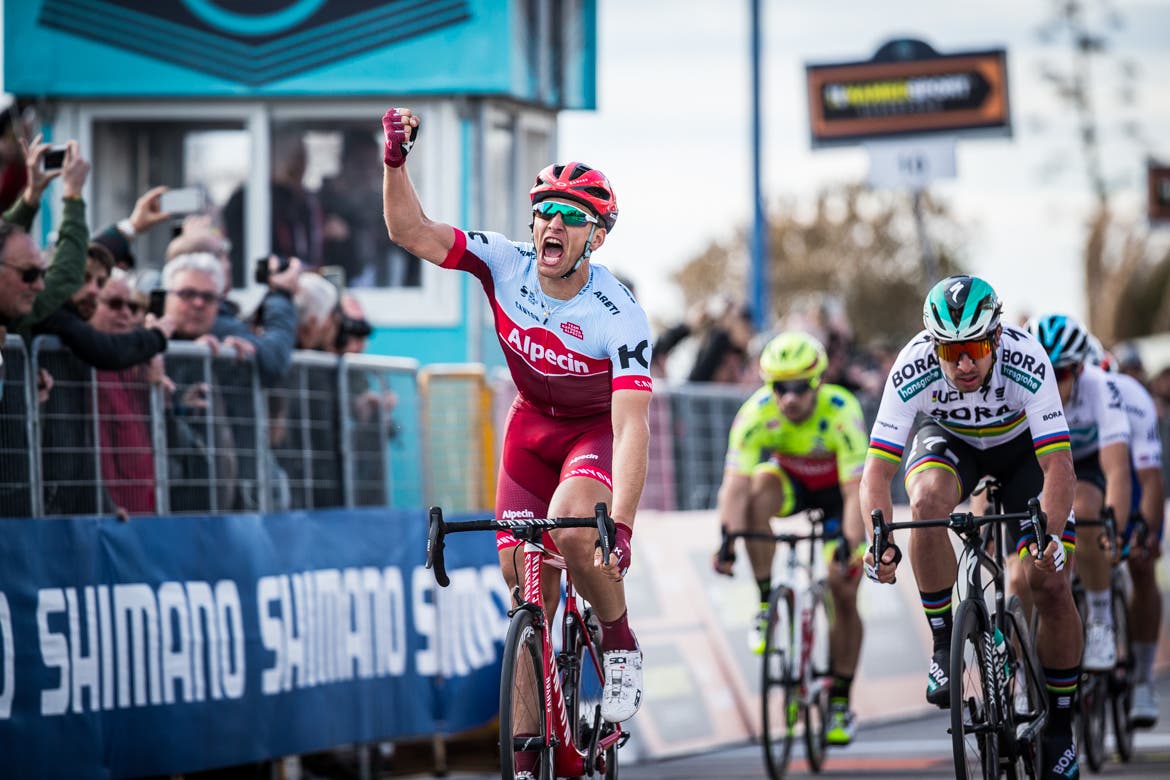Kittel shrugs off slow start to 2018: The Tour is all that matters

Photo: Chris Graythen/Getty Images for AEG (FILE)
Marcel Kittel dominated the sprints at the 2017 Tour de France, taking five wins there before crashing out. One year later, he is ramping up for a return to cycling’s main event, albeit on the heels of a quieter spring campaign than he might have hoped.
A pair of stage wins at Tirreno-Adriatico have been Kittel’s only victories so far this year, his first with Katusha-Alpecin after transferring from Quick-Step Floors last off-season. Nonetheless, Kittel is not hitting the panic button. Wins in the first half of the year are nice, but success in the run-up to the Tour is only so important.
“It basically means nothing,” Kittel told VeloNews at the Amgen Tour of California. “If you win in the Tour de France, that’s what matters.”
Now 30, Kittel is no longer an up-and-comer in the sport’s fastest finishes. He’s been around the block a few times, and has worked through rough patches before. After collecting eight stage wins between the 2013 and 2014 Tours de France, Kittel saw his 2015 season derailed by illness. His lone stage win in his return to the Tour the following year was not up to his standards either. He was able to put both of those underwhelming campaigns in the rearview mirror, however, to boss the Tour sprints last season.
“In ’15, of course, that’s the moment it happens the first time in your life, where you’re suddenly not in the place you want to be, many things are wrong, you’re not healthy or whatever and you can’t reach your goals, that’s where you really struggle,” Kittel said. “It’s important to focus again on your goals, to be where you want to be, and not be afraid of changes.”
Kittel’s off-season move certainly represents a major change for him. The transfer meant leaving Quick-Step’s vaunted lead-out squad behind and starting fresh at Katusha-Alpecin. That’s no simple task, even for Kittel.

In several stages of last year’s Tour de France, Kittel opted to detach himself from his lead-out train to freelance his way to wins. Much was made of his unconventional tactics, particularly considering the traditional strength of the Quick-Step train. At the time, Kittel said he often preferred to go it alone in the closing meters.
This season, he may be angling back toward a more traditional strategy. He does not appear interested in replicating the way he and Quick-Step approached the sprints with his new team.
“The [2017] Tour definitely was special,” he said. “There were a lot of moments where I really just completely trusted my instinct, and the team brought me as far as possible. But that’s not important now. For us, it’s now important for us to find our way of working.”
A return to relying on the lead-out makes it even more critical for Kittel to mesh with his teammates. The Amgen Tour of California, then, was a golden opportunity to try things out against stiff competition. Having come up empty in the sprints there, Kittel and Co. showed they still have work to do getting to know each other’s tendencies and preferences in the bunch kicks.
“The first [California] stage was just the third time in a race with the combination where [Rick Zabel] was directly in front of me,” Kittel said. “When you look to other teams, it’s still a big difference in terms of the relationship that we have with each other.”
Cementing those relationships is critical for a sprinter, but the way Kittel sees it, it’s not a major challenge. It’s just something that takes a bit of time.
“You just need a little bit of feeling for human beings in general and then you’re fine,” he said. “Every professional team should have an atmosphere where you shouldn’t be afraid of saying something. Also, the boys if they have a problem or think something’s not going right, or I didn’t do things good in some situation, then they should tell me. Everyone has to be open to that.”

Working out kinks in the Katusha-Alpecin lead out will only be half the battle for Kittel, who had some ground to cover to get into Tour shape as of late May. That was all part of the plan with a month and a half to go until the opening stage in Brittany, of course, but it doesn’t mean he can cruise through June without building on his form. That’s especially true considering the competition.
Although Kittel’s longtime rivals Mark Cavendish (Dimension Data) and André Greipel (Lotto-Soudal) may be on the back slopes of their careers, newcomers Fernando Gaviria (Quick-Step Floors) and Caleb Ewan (Mitchelton-Scott) are primed to muscle into the sprint battles this July. Both are set to make their Tour debuts next month.
Gaviria looked terrific in California, winning all three sprint stages. Ewan looked strong there as well; in his first racing appearance since March, he finished second or third on four stages.
Kittel knows he needs to take full advantage of the next few weeks if he hopes to remain the undisputed king of the sprints at this year’s Tour de France. After the Tour of California, he stayed stateside for a while to train at altitude in Colorado.
Next up on his pre-Tour docket: the Rund um Köln and the Tour de Slovenie.
He’ll look to round his way into shape in those races as the Grand Départ inches closer. Tour form will be the goal. Results for the sake of results might not be at the top of Kittel’s list of priorities in June.
“In ’13 and ’14, the national championships were a disaster for me and then I won a lot of stages in the Tour. Even the stage race before wasn’t always good. But then we’d say, ‘Oh, it’s a good sign for the Tour de France.'” Kittel noted.
“Everything that happens, you can talk about it in a good way. It’s just a mental trick. It doesn’t really matter what happened before the Tour if you are successful there.”